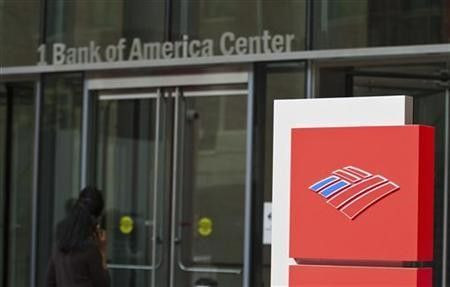Does Bank of America Need to Raise More Capital?

All eyes are on Bank of America (NYSE: BAC) ahead of Tuesday's opening bell after the banking giant suffered a 20 percent loss on Monday's trading.
The Charlotte-based company suffered a series of blows on Monday that likely had a major impact on its stock's precipitous drop. The biggest came when American International Group Inc. announced a $10 billion dollar lawsuit against Bank of America.
AIG is hoping to recoup $10 billion out of an initial $28 billion-dollar investment, alleging fraud against Bank of America in its mortgage holdings. Bank of America steadfastly denied the fraud claims and put the fault squarely on AIG's bad investment decisions, but another costly lawsuit doesn't bode well for the company.
It also suffered when Appaloosa hedge-fund investor David Tepper decided to sell his 17 million shares on Monday. He had previously been bullish on Bank of America and other troubled banks, such as Wells Fargo, but now has cut ties to both.
The company has struggled mightily since the 2008 housing crisis through its connection with Countrywide Financial, which it initially bought for $6 billion and now has been forced to set aside $30 billion to deal with the mess.
As more and more lawsuits pile up, it begs the question as to whether Bank of America will be forced to raise capital in order to get itself out of the bad situation. Raising capital would inevitably devalue investor shares, but it might be a necessary measure in order to survive.
"They probably don't need to right now, but every day there's another lawsuit out there that has merit," FBR Capital Markets analyst Paul Miller told Bloomberg News. "How in the heck are they going to settle all these suits unless there's some way to break away from the Countrywide liabilities?"
Bank of America's shares currently trade the lowest among the United States' four biggest lenders, and they could continue to drop if the country heads into a rumored double-dip recession.
A double-dip recession is when a country dips back into a recession after seeing positive growth for a year or two, and some industry experts have suggested it's a possibility after Standard & Poor's downgrade of long-term U.S. debt.
If the United States does enter into another recession, it wouldn't bode well for Bank of America.
"The bias that exists, and that is gaining credibility, is that a double-dip is ahead of us," Charles Peabody, an analyst at Portales Partners LLC, told Bloomberg. "If that's the case, then something like Bank of America is going to have to raise substantial equity externally."
All of this makes Bank of America the biggest company to watch during Tuesday's trading. Its shares were trading up approximately 7 percent in pre-market trading.
© Copyright IBTimes 2024. All rights reserved.




















